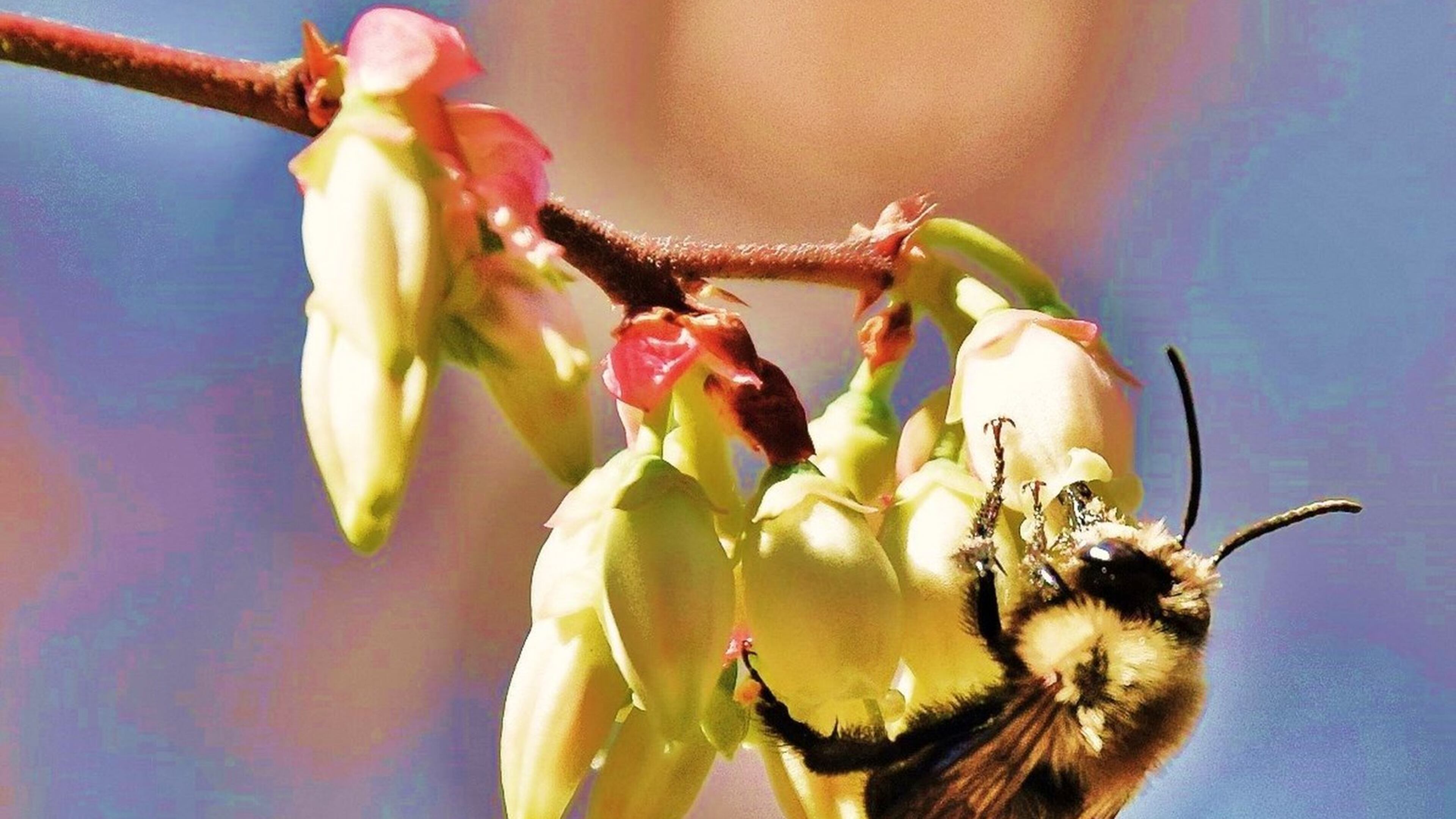The buzz on pollination by bees

A hearty welcome to spring, which officially begins at 5:58 p.m. on Wednesday, the vernal equinox. As if to greet the season, a familiar sound is revving up now: bee buzzing.
Most of us probably take bee buzzing in spring for granted, but to the bees it has important functions. Bees may buzz during courtship or, if they are caught or threatened, to sound an alarm.
In addition, for many of Georgia’s 500 native bee species, including bumble bees and carpenter bees, buzzing serves another vital purpose: pollen collecting. The foraging technique is, in fact, called “buzz pollination,” or sonification. (Honeybees, natives of Europe, are unable to buzz pollinate.)
For blueberries, huckleberries and several spring wildflowers, and for common garden vegetables in the nightshade family such as tomatoes, eggplants and peppers, buzz pollination is crucial because of the specialized structures of their flowers..
In most plants, bees and other insects easily gather pollen from the surfaces of anthers (male parts) of flowers. But in blueberries and nightshade plants, the pollen is held tightly inside the anthers. To get it, bumble bees and other native bees bite the anthers and then hang on and vigorously vibrate their flight muscles — producing a high-pitched buzz that shakes the anthers and douses the bees with pollen.
The bees load the pollen behind their hind legs and carry it to their nests to feed larvae. Some pollen, though, clings to their bodies and gets deposited in other flowers that they visit. Thus, the bees perform cross-pollination, which eventually results in mature fruits and vegetables.
In short, we might not have blueberries without buzz pollination. Some bees specialize in blueberry pollination. One is the Southeastern blueberry bee (Habropoda laboriosa), one of the most efficient buzz pollinators of blueberry flowers. Resembling a bumble bee but smaller and faster, it is active only in the spring when the blueberries bloom.
IN THE SKY: From David Dundee, Tellus Science Museum astronomer: The moon will be full on Wednesday. Venus rises in the east about an hour before dawn. Mars is low in the southwest at dusk. Jupiter and Saturn are low in the east.

